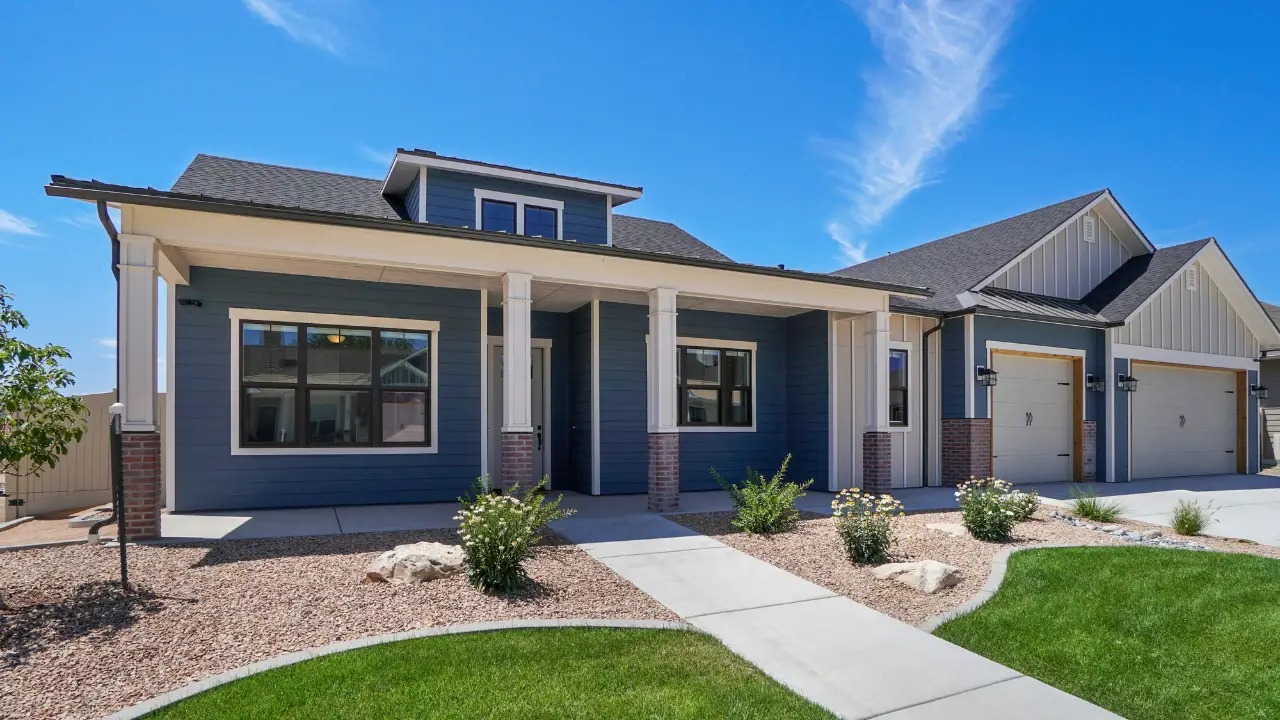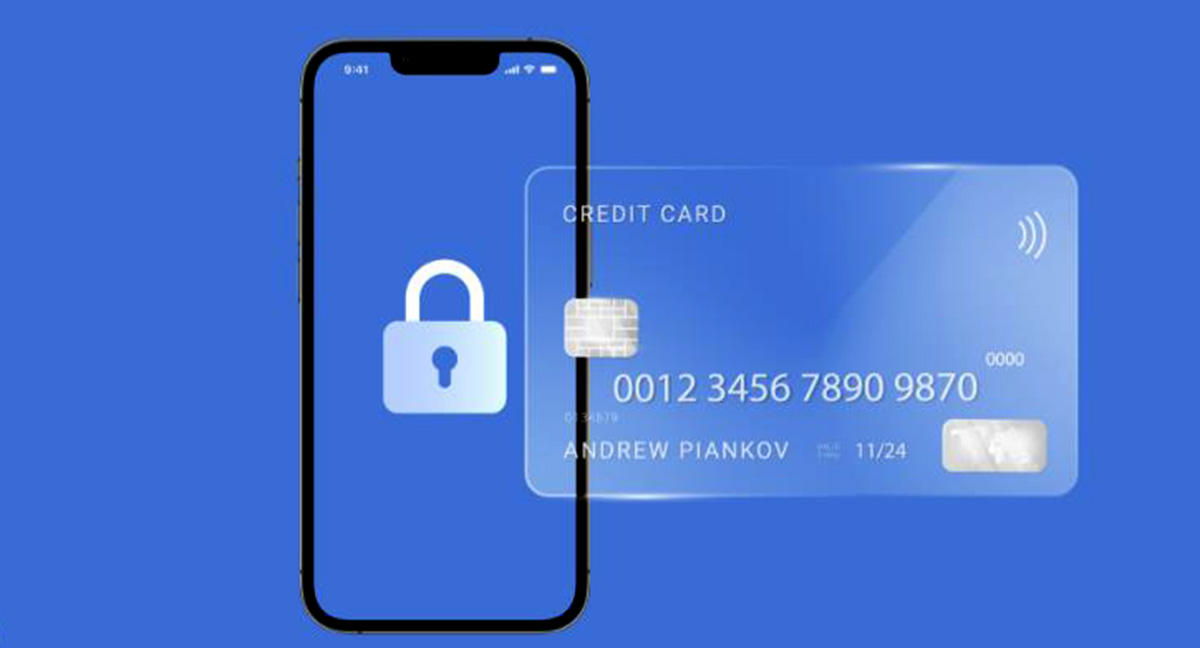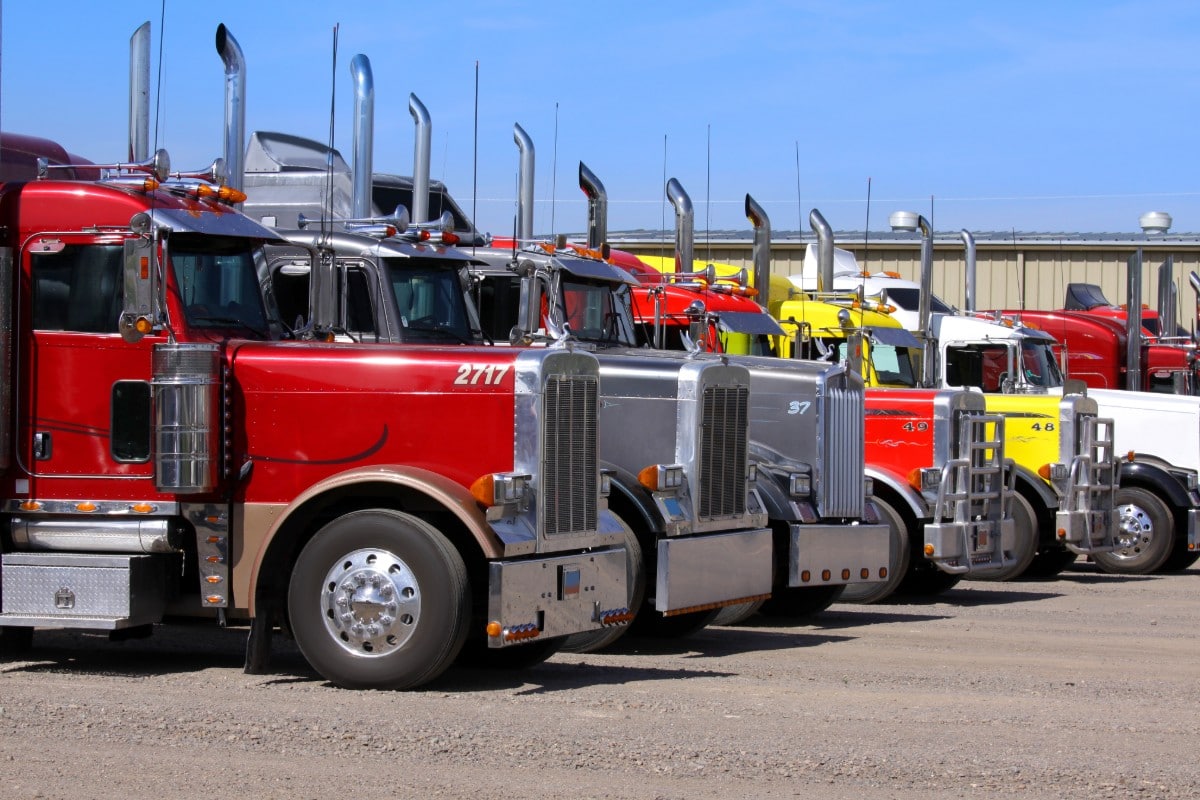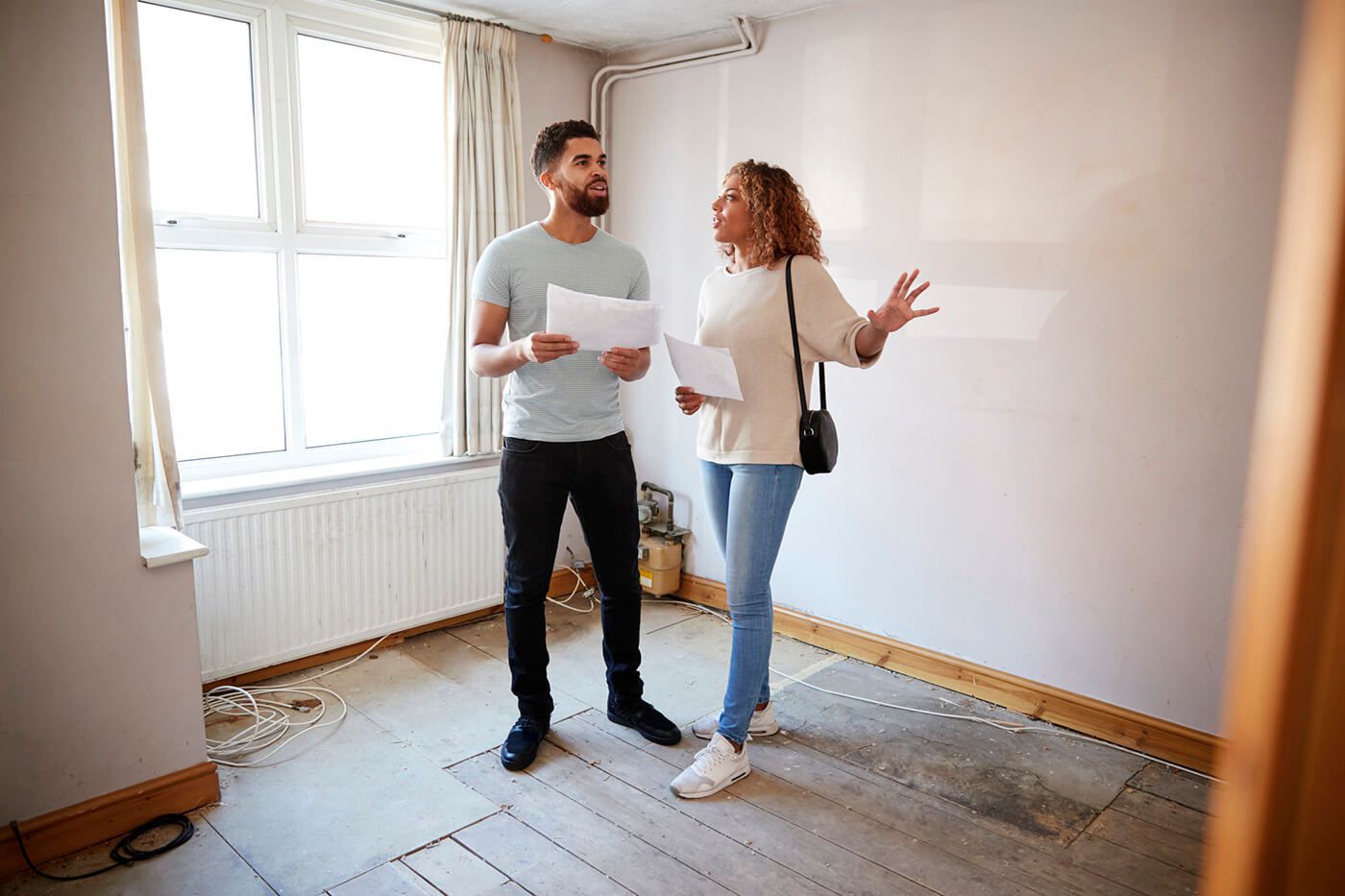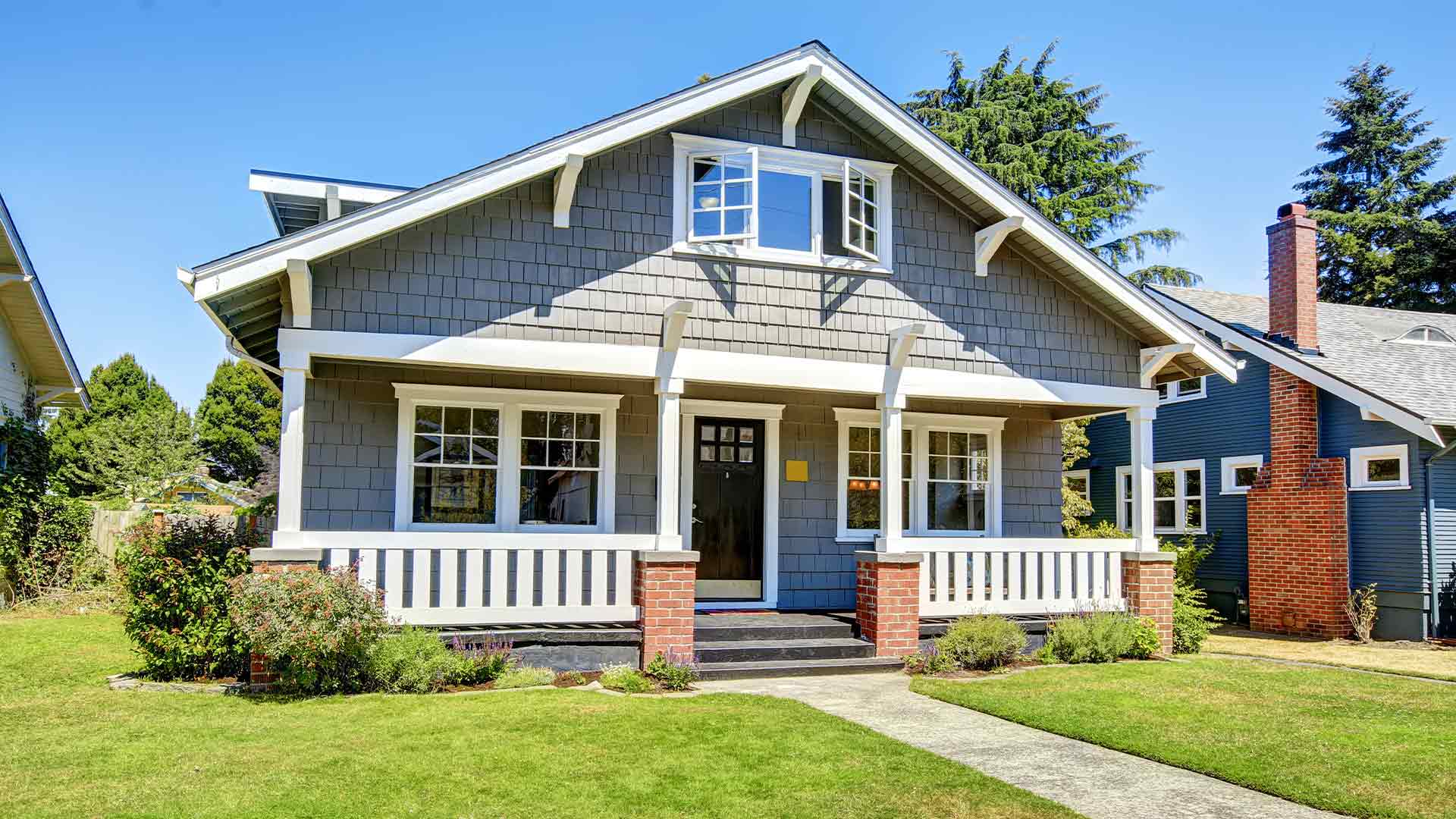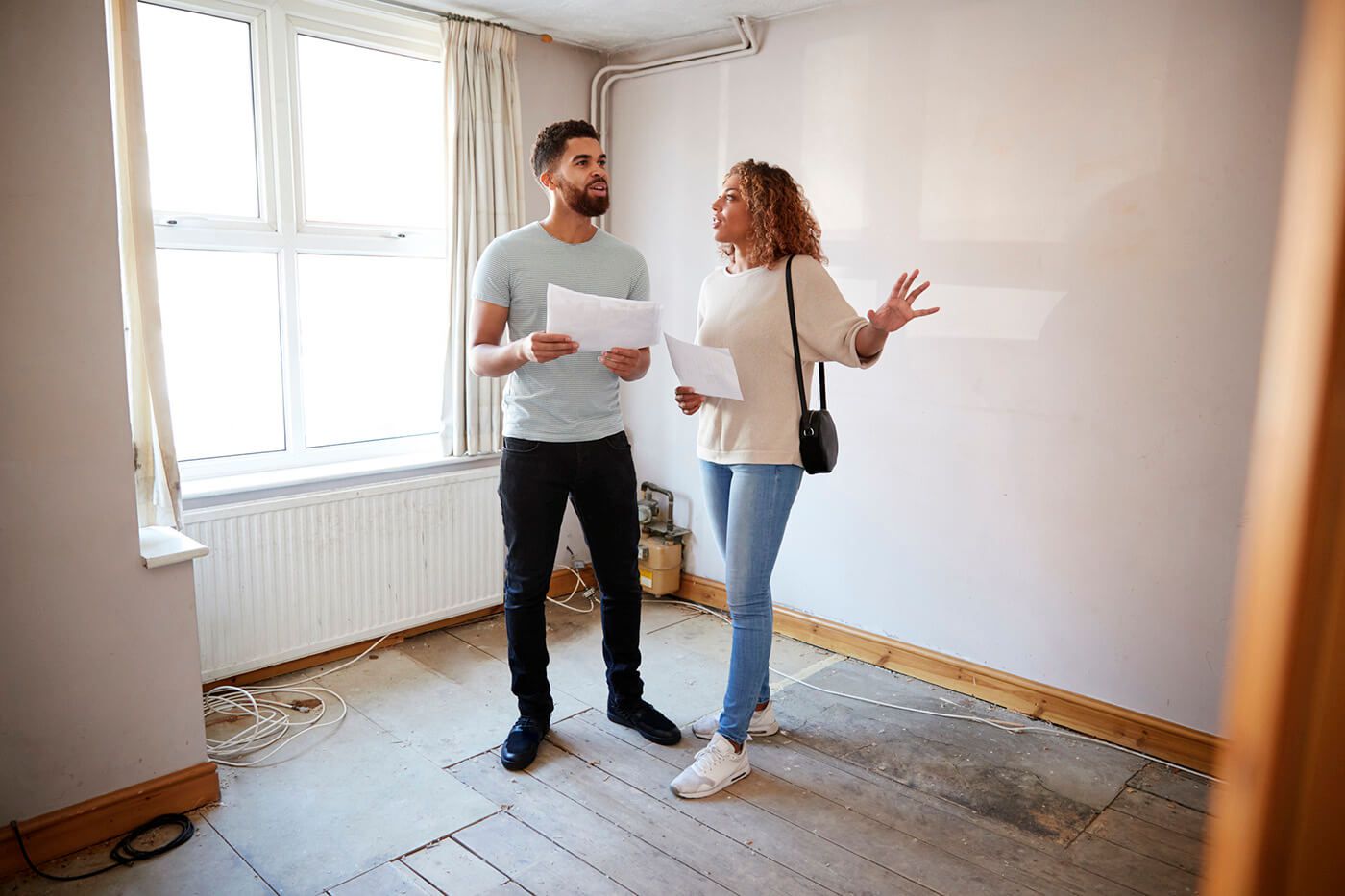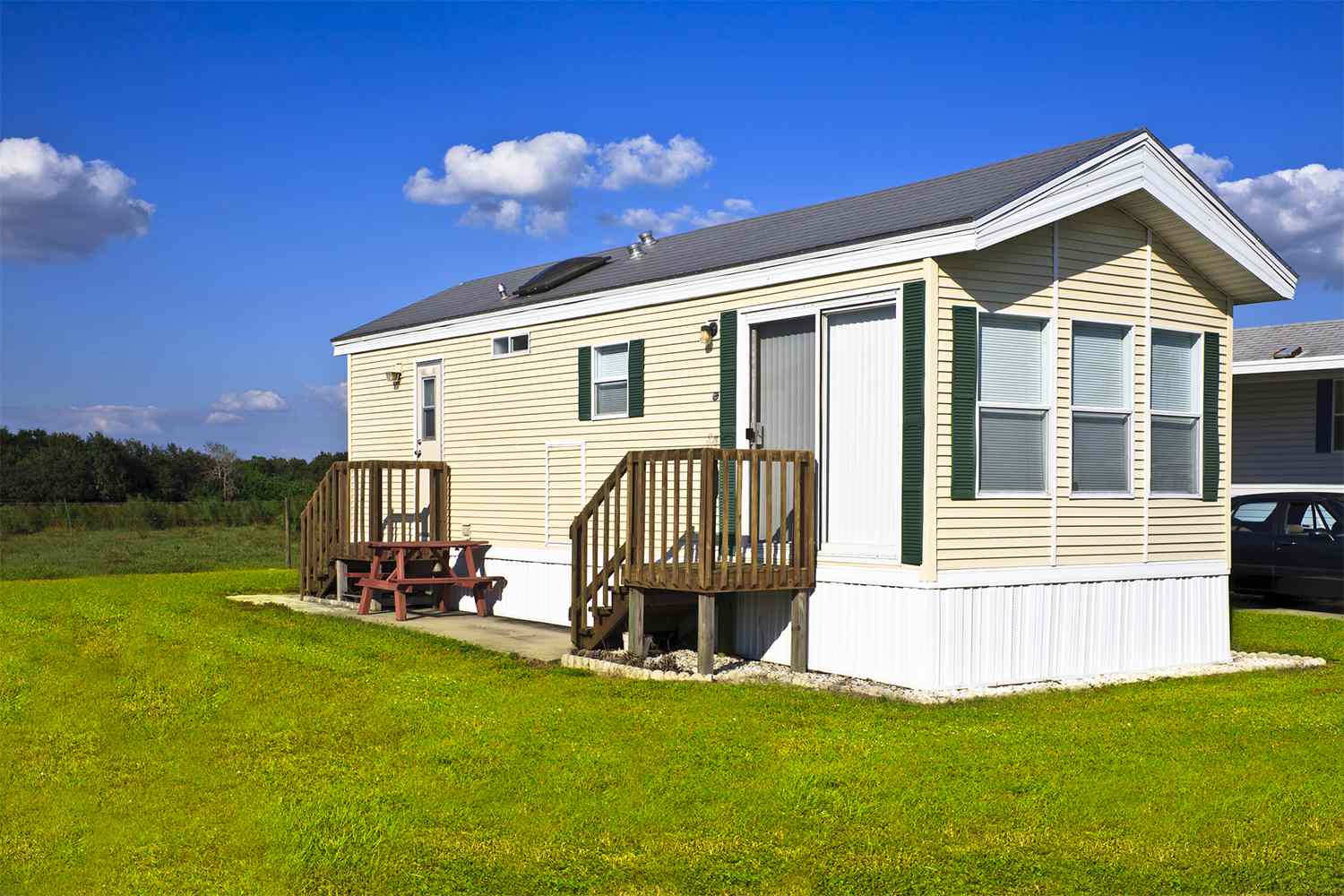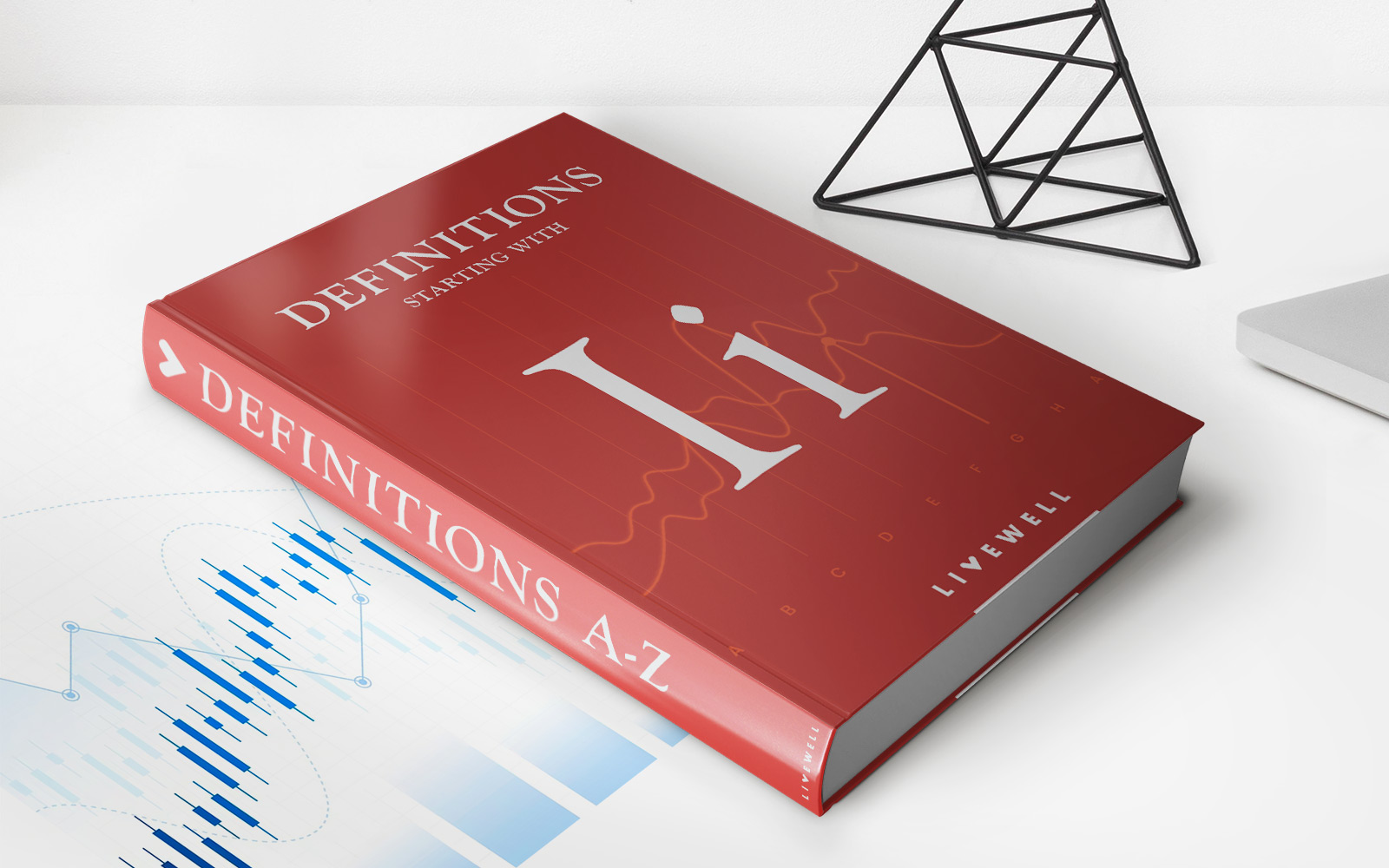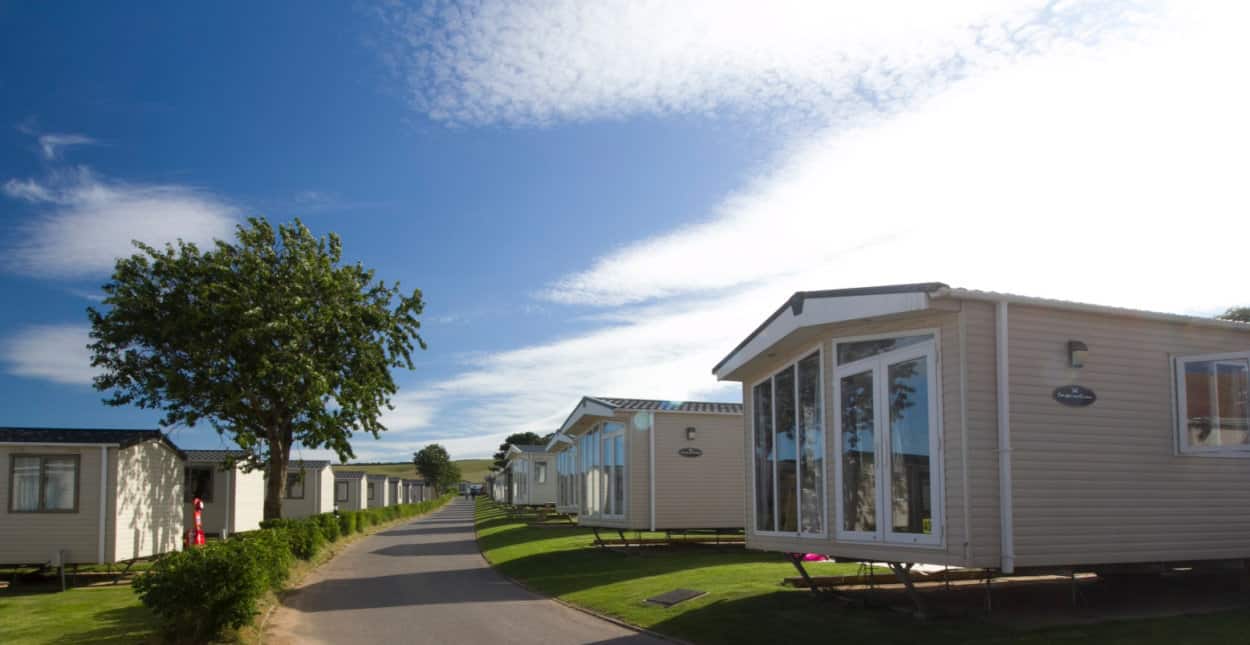

Finance
How To Finance A Mobile Home With Bad Credit
Modified: February 21, 2024
Learn how to finance a mobile home with bad credit. Get tips and advice on securing a loan for your mobile home purchase, even with a low credit score.
(Many of the links in this article redirect to a specific reviewed product. Your purchase of these products through affiliate links helps to generate commission for LiveWell, at no extra cost. Learn more)
Table of Contents
- Introduction
- Understanding Mobile Home Financing
- Factors Affecting Mobile Home Financing with Bad Credit
- Steps to Finance a Mobile Home with Bad Credit
- Improving Your Credit Score
- Researching Lenders and Loan Options
- Applying for Mobile Home Financing
- Tips for Securing a Loan with Bad Credit
- Alternative Financing Options for Mobile Homes
- Conclusion
Introduction
Financing a mobile home can be a great way to fulfill the dream of homeownership. However, if you have bad credit, you may encounter some challenges along the way. Having a low credit score can make it difficult to secure traditional financing options and may lead to higher interest rates and stricter lending requirements.
The good news is that even with bad credit, it’s still possible to finance a mobile home. There are lenders who specialize in working with individuals with less-than-perfect credit scores and offer loan programs tailored to their needs. This article will guide you through the process of financing a mobile home with bad credit, providing you with valuable insights and actionable steps to help you achieve your goal.
In order to understand how to finance a mobile home with bad credit, it’s important to first understand how mobile home financing works. Unlike traditional homes, mobile homes are typically classified as personal property or chattel. This means that they are not considered real estate and cannot be financed through a traditional mortgage loan.
Instead, mobile homes are typically financed through personal loans or specialized mobile home loans. These loans may have higher interest rates and shorter terms compared to traditional mortgage loans. However, they provide a viable financing option for individuals looking to purchase a mobile home despite their bad credit.
Factors such as your credit score, income, employment history, and down payment amount will all play a role in determining your eligibility for mobile home financing. It’s important to note that while bad credit may make the process more challenging, it does not necessarily mean that you won’t be able to secure a loan. By taking proactive steps to improve your credit and exploring different financing options, you can increase your chances of successfully financing a mobile home.
In the following sections, we will delve deeper into the various factors that can affect mobile home financing with bad credit, as well as the steps you can take to improve your credit score and secure a loan. We will also explore alternative financing options that may be available to you. So let’s get started on the journey towards turning your mobile home ownership dreams into reality!
Understanding Mobile Home Financing
When it comes to financing a mobile home, it’s important to have a clear understanding of how the process works. Unlike traditional homes, mobile homes are classified as personal property or chattel, which means they are not considered real estate. As a result, they typically cannot be financed through traditional mortgage loans.
Mobile home financing options usually fall into two categories: personal loans and specialized mobile home loans. Personal loans are relatively easy to obtain and can be used for various purposes, including purchasing a mobile home. These loans are typically unsecured, meaning they do not require collateral. However, they may come with higher interest rates and shorter repayment terms compared to mobile home loans.
On the other hand, specialized mobile home loans are designed specifically for purchasing or refinancing mobile homes. These loans are secured by the home itself and may offer lower interest rates and longer repayment terms compared to personal loans. Mobile home loans are typically offered by lenders who specialize in manufactured housing and understand the unique aspects of financing mobile homes.
When seeking mobile home financing, your credit score will play a significant role. Lenders will consider your credit history to assess your creditworthiness and determine the terms and interest rates of your loan. While bad credit can make it more challenging to secure financing, there are lenders who specialize in working with individuals with lower credit scores.
In addition to your credit score, lenders will also consider other factors. These may include:
- Income and Employment: Lenders will review your employment history and income to ensure that you have a stable source of income to make timely loan payments.
- Down Payment: The amount of money you are able to put down as a down payment can impact the terms and interest rates of your loan. A larger down payment may improve your chances of securing financing.
- Age and Condition of the Mobile Home: The age and condition of the mobile home may also influence the lender’s decision. Newer and well-maintained homes may be more attractive to lenders.
It’s important to do your research and compare different lenders and loan options to find the best fit for your needs. Look for lenders who specialize in mobile home financing and have experience working with individuals with bad credit. Additionally, consider working with a loan officer or financial advisor who can guide you through the process and help you find suitable financing options.
Understanding the basics of mobile home financing is the first step towards securing a loan with bad credit. In the next section, we will explore the factors that can affect mobile home financing with bad credit and discuss how you can improve your credit score to increase your chances of securing a loan.
Factors Affecting Mobile Home Financing with Bad Credit
Having bad credit can make it more challenging to obtain financing for a mobile home. Lenders may view you as a higher risk borrower and impose stricter lending requirements or charge higher interest rates. Understanding the factors that can affect mobile home financing with bad credit can help you navigate the process and improve your chances of securing a loan.
Here are some key factors that lenders take into consideration when evaluating mobile home financing applications from individuals with bad credit:
- Credit Score: Your credit score is a numerical representation of your creditworthiness. Lenders use this score to assess the risk associated with lending you money. Individuals with bad credit scores, usually below 580, may face more difficulty in obtaining financing and may be subject to higher interest rates. It’s important to check your credit score and review your credit report to identify any errors or discrepancies that can be corrected to improve your creditworthiness.
- Income and Employment History: Lenders want to ensure that you have a stable and sufficient income to make loan payments on time. They typically evaluate your income level and employment history to determine your ability to repay the loan. Having a consistent employment history and a higher income can increase your chances of being approved for financing, even with bad credit.
- Down Payment: Offering a larger down payment can help offset the risk associated with bad credit. By making a substantial down payment, you demonstrate your commitment and ability to invest in the mobile home. A higher down payment can also potentially lower your interest rates and monthly payments.
- Debt-to-Income Ratio: Lenders evaluate your debt-to-income ratio, which is the percentage of your monthly income that goes towards debt payments. A high debt-to-income ratio can indicate financial instability and may make it more difficult to secure financing. It’s important to keep your debt levels in check and minimize your monthly debt obligations before applying for a mobile home loan.
- Age and Condition of the Mobile Home: The age and condition of the mobile home can impact the lender’s decision. Older homes or homes in poor condition may be deemed less valuable and therefore less desirable collateral for the loan. Lenders may have restrictions on the age of the mobile home they are willing to finance, with newer homes being more favorable.
While these factors can affect your ability to secure financing with bad credit, it’s important to remember that there are lenders who specialize in working with individuals with lower credit scores. These lenders understand the unique challenges faced by borrowers with bad credit and may have loan programs specifically tailored to their needs.
In the next section, we will discuss the steps you can take to improve your credit score, which can significantly increase your chances of securing mobile home financing with more favorable terms.
Steps to Finance a Mobile Home with Bad Credit
While having bad credit may present challenges, it’s still possible to finance a mobile home and achieve your dream of homeownership. Here are some steps you can take to improve your chances of securing a loan despite your bad credit:
- 1. Improve Your Credit Score: Start by reviewing your credit report to identify any errors and discrepancies. Addressing these issues can help improve your credit score. Additionally, focus on paying your bills on time and reducing your overall debt. Over time, these steps can have a positive impact on your creditworthiness.
- 2. Save for a Down Payment: Saving for a larger down payment demonstrates your commitment and financial stability. A higher down payment can also help offset the risk associated with bad credit and potentially lower your interest rates and monthly payments. Aim to save at least 10-20% of the home’s purchase price.
- 3. Research Lenders and Loan Options: Look for lenders who specialize in mobile home financing and have experience working with borrowers with bad credit. Compare their loan programs and interest rates to find the best fit for your needs. Consider reaching out to loan officers or financial advisors who can guide you through the process.
- 4. Gather Required Documents: Lenders will require certain documents to evaluate your loan application. These may include proof of income, employment history, bank statements, and identification documents. Be prepared to provide these documents in a timely manner to expedite the loan application process.
- 5. Apply for Mobile Home Financing: Once you have identified a lender and gathered the necessary documents, it’s time to submit your loan application. Be honest and provide accurate information about your financial situation. Lenders understand that individuals with bad credit may have faced challenges in the past, and they may have loan programs that can accommodate your specific circumstances.
- 6. Consider a Co-Signer or Co-Borrower: If your credit score is extremely low or if you’re facing difficulty in obtaining financing on your own, consider asking a trusted family member or friend with a stronger credit history to co-sign or co-borrow with you. Their creditworthiness can strengthen your loan application and increase the likelihood of approval.
- 7. Be Prepared for Higher Interest Rates: It’s important to understand that with bad credit, you may face higher interest rates compared to borrowers with excellent credit. Be prepared for this and factor it into your budget to ensure that you can comfortably afford the monthly payments.
Remember, the process of financing a mobile home with bad credit may take some time and effort. However, by taking proactive steps such as improving your credit score, saving for a down payment, and researching lenders, you can increase your chances of successfully securing a loan. Don’t give up on your dream of homeownership – with the right approach and determination, you can make it a reality.
Improving Your Credit Score
If you have bad credit and are looking to finance a mobile home, improving your credit score is crucial. A higher credit score not only improves your chances of getting approved for a loan, but it can also help you secure better interest rates and loan terms. Here are some steps you can take to improve your credit score:
- Review Your Credit Report: Start by obtaining a copy of your credit report from one of the major credit bureaus: Experian, Equifax, or TransUnion. Review it carefully and check for any errors, such as incorrect account information or late payments that were reported incorrectly. Dispute any errors you find to have them corrected.
- Pay Your Bills on Time: Consistently paying your bills on time is one of the most important factors in determining your credit score. Set up automatic payments or reminders to ensure that you never miss a payment. Over time, this will demonstrate responsible financial behavior and positively impact your creditworthiness.
- Reduce Your Debt: High levels of debt can negatively affect your credit score. Develop a plan to pay down your existing debts, starting with high-interest loans or credit cards. Make additional payments whenever possible to reduce the balances and improve your credit utilization ratio.
- Avoid Applying for New Credit: Too many credit applications within a short period of time can negatively impact your credit score. Each application generates a hard inquiry on your credit report. Instead, focus on improving your existing credit and minimizing new credit applications until your credit score improves.
- Keep Old Credit Accounts Open: Length of credit history is an important factor in calculating your credit score. Even if you no longer use a credit card or have paid off a loan, keeping the account open can contribute positively to your credit history. Closing old accounts can shorten your credit history and lower your score.
- Establish New Positive Credit: If you have limited or no credit history, consider opening a secured credit card or becoming an authorized user on someone else’s credit card account. Use the card responsibly and make timely payments to start building a positive credit history.
- Seek Professional Help: If you’re struggling to improve your credit on your own, consider seeking help from a credit counseling agency or a financial advisor. They can offer guidance on managing debt, creating a realistic budget, and developing a plan to improve your creditworthiness.
It’s important to remember that improving your credit score takes time and patience. Be consistent in your efforts, and avoid quick-fix scams that promise instant credit repair. Focus on responsible financial habits and maintaining a good payment history. Over time, your credit score will improve, giving you more options and better loan terms when it comes to financing a mobile home with bad credit.
Researching Lenders and Loan Options
When it comes to financing a mobile home with bad credit, it’s important to research different lenders and loan options available to you. Not all lenders are created equal, and finding the right lender can make a significant difference in securing favorable financing terms. Here are some steps to consider when researching lenders and loan options:
- Specialized Mobile Home Lenders: Start by looking for lenders who specialize in mobile home financing. These lenders have experience working with borrowers with varying credit scores and understand the unique aspects of financing mobile homes. They may have loan programs designed specifically for individuals with bad credit.
- Online Research: Utilize online resources to explore different lenders and read reviews from other borrowers. Look for lenders that have positive customer feedback and a strong reputation for providing fair and transparent loan terms. Websites and online forums dedicated to mobile home financing can also be valuable sources of information and recommendations.
- Loan Programs: Take the time to understand the various loan programs offered by different lenders. Compare interest rates, repayment terms, and any additional fees associated with the loans. Look for loan programs that are compatible with your financial situation and goals.
- Customer Service: Reach out to lenders and assess their customer service capabilities. Prompt and professional customer service can be an indicator of a lender that is invested in helping borrowers navigate the financing process. Consider contacting lenders directly to ask questions and get a sense of their responsiveness and willingness to assist you.
- Loan Officer Assistance: Consider working with a loan officer who specializes in mobile home financing. These professionals can provide personalized guidance and help you navigate the loan application process. They can help you understand your financing options and assist in finding the best lender for your specific needs.
- Comparison Shopping: Don’t be afraid to shop around and compare offers from multiple lenders. Gather quotes from different lenders and evaluate the terms and conditions of each loan offer. Remember to consider factors such as interest rates, repayment terms, loan fees, and any prepayment penalties. Comparing multiple offers can help you find the most favorable financing terms.
- Ask for Recommendations: Seek recommendations from friends, family, or colleagues who have previously financed a mobile home. They may have valuable insights and recommendations based on their own experiences. However, always conduct your own research and evaluate lenders based on your specific needs and financial situation.
Remember, financing a mobile home with bad credit may require more effort and research compared to borrowers with excellent credit. However, by taking the time to research different lenders, loan options, and loan programs, you can increase your chances of finding a lender that is willing to work with you and provide financing that fits your needs and goals. With thorough research and careful consideration, you can secure a loan that allows you to turn your mobile home ownership dreams into reality.
Applying for Mobile Home Financing
Once you have conducted thorough research and found a lender and loan program that suits your needs, it’s time to apply for mobile home financing. The application process may vary slightly depending on the lender, but the following steps will provide a general overview of what to expect:
- Prepare Required Documents: Before applying for mobile home financing, gather all the necessary documents. These may include proof of income, employment history, bank statements, identification documents, and any other information the lender requires. Having these documents ready in advance can help streamline the application process.
- Complete the Loan Application: Fill out the loan application form provided by the lender. Provide accurate and honest information about your income, employment, and credit history. Double-check the application for any errors or missing information before submitting it.
- Provide Additional Information: The lender may request additional information or documentation to further assess your eligibility for mobile home financing. Be prepared to provide any requested information promptly to prevent delays in the application process.
- Wait for Loan Approval: Once you have submitted your application, the lender will review your information and assess your creditworthiness. The approval process may take some time, so be patient. During this time, avoid making any major financial decisions or taking on additional debt that could negatively impact your creditworthiness.
- Review Loan Terms: If your loan application is approved, carefully review the loan terms provided by the lender. Pay attention to the interest rate, repayment terms, any fees associated with the loan, and any other important details. Ensure that you fully understand the terms and ask questions if anything is unclear.
- Sign the Loan Agreement: If you are satisfied with the loan terms, sign the loan agreement to officially accept the loan. By signing the agreement, you are agreeing to repay the loan according to the terms set forth by the lender. Read the agreement carefully and make sure you are comfortable with all the provisions before signing.
- Complete Closing Process: After signing the loan agreement, there may be additional steps to complete the closing process. This may involve working with a title company or an attorney to ensure all necessary legal requirements are met. The lender will guide you through these steps and provide instructions on what needs to be done.
- Begin Repayment: Once all the paperwork is completed, it’s time to start repaying the loan according to the agreed-upon terms. Set up automatic payments if possible to ensure that payments are made on time. Making timely payments will help you establish a positive payment history and continue to improve your credit score.
Remember, each lender may have slightly different processes and requirements for applying for mobile home financing. It’s important to carefully follow their instructions and provide all requested information promptly. By being diligent and organized throughout the application process, you can increase your chances of securing the loan you need to finance your mobile home.
Tips for Securing a Loan with Bad Credit
Securing a loan with bad credit can be challenging, but it’s not impossible. Here are some tips to help you improve your chances of obtaining financing for a mobile home:
- Work on Improving Your Credit Score: Take proactive steps to improve your credit score by paying your bills on time, reducing your debt, and correcting any errors on your credit report. A higher credit score will make you a more attractive borrower to lenders.
- Save for a Larger Down Payment: Saving for a larger down payment shows your commitment and reduces the risk for lenders. Offering a substantial down payment may increase your chances of securing a loan and result in more favorable loan terms.
- Consider a Co-Signer or Co-Borrower: If possible, find a creditworthy individual who is willing to co-sign or co-borrow with you. Their credit history and financial stability can help strengthen your loan application and increase the likelihood of approval.
- Show Proof of Income and Job Stability: Lenders want to see that you have a steady source of income to make regular loan payments. Provide documentation such as pay stubs or tax returns to demonstrate your income and employment history.
- Be Realistic About Loan Options: Understand that with bad credit, you may face higher interest rates and less favorable loan terms. Be realistic about what you can afford and choose a loan program that fits within your budget.
- Explore Government Programs: Research government programs specifically designed to assist individuals with bad credit in obtaining financing for manufactured homes. These programs may offer more flexible terms and requirements.
- Showcase Your Mobile Home’s Value: Highlight the value, condition, and features of the mobile home you plan to purchase. Providing evidence of the home’s market value and its good condition may help alleviate some concerns for lenders.
- Consider Credit Unions or Alternative Lenders: Traditional banks may have stricter lending requirements, but credit unions or alternative lenders could be more willing to work with borrowers with bad credit. Research and explore these options to find institutions that cater to your needs.
- Be Prepared to Explain Your Situation: If you have a valid reason for your bad credit, such as a major life event or unexpected hardship, be prepared to explain your circumstances to the lender. Providing context can help them understand your situation better.
- Get Professional Guidance: Consult with a loan officer or financial advisor who specializes in mobile home financing. They can provide expert guidance, help you understand your options, and assist you throughout the loan application process.
Remember, securing a loan with bad credit may require some extra effort and patience. Don’t be discouraged if you face rejection from some lenders – keep exploring different options and remain persistent in your search for financing. With determination and the right steps, you can secure the loan you need to finance your mobile home and take a significant step towards homeownership.
Alternative Financing Options for Mobile Homes
If you have bad credit and are having difficulty securing traditional mobile home financing, don’t lose hope. There are alternative financing options available that can help you achieve your goal of purchasing a mobile home. Here are some alternatives to consider:
- Owner Financing: With owner financing, the home seller acts as the lender and provides financing directly to the buyer. This can be a viable option for individuals with bad credit, as the seller may be more flexible in their requirements and terms.
- Lease-to-Own: In a lease-to-own arrangement, you lease the mobile home with an option to buy it at the end of the lease term. A portion of your monthly payments may go towards the purchase price. This option allows you to build equity in the home while improving your credit to secure traditional financing later.
- Down Payment Assistance Programs: Some organizations and agencies offer down payment assistance programs specifically for mobile home buyers. These programs provide financial assistance or grants to help cover a portion of the down payment, making homeownership more affordable.
- Non-Profit Organizations: Certain non-profit organizations focus on providing affordable housing options for individuals with bad credit. They may offer financing options or assistance in finding affordable mobile homes and connecting you with lenders who are willing to work with borrowers in challenging credit situations.
- Peer-to-Peer Lending: Peer-to-peer lending platforms connect borrowers directly with individual lenders who are willing to provide financing. These platforms often have more relaxed lending criteria and may be more willing to work with individuals with bad credit. However, be aware that interest rates may still be higher than traditional financing options.
- Credit Unions: Credit unions are member-owned financial institutions that may offer more flexible lending requirements compared to traditional banks. They may have specific loan programs for mobile homes and be more open to working with borrowers with bad credit.
- Family and Friends: If possible, consider reaching out to family or friends who may be willing to provide financial assistance. They may be more understanding of your credit situation and offer more flexible repayment terms.
- Private Lenders: Private lenders, such as individuals or investment groups, may be willing to provide financing for mobile homes. They often have more flexibility in their lending criteria and may consider factors beyond just credit score when evaluating loan applications.
- Home Equity Loans: If you currently own a property with equity, you may be able to use a home equity loan or line of credit to finance your mobile home. The existing equity can serve as collateral and help secure funding, even with bad credit. However, be mindful of the potential risks involved, as you’re using your property as collateral.
- Community Development Financial Institutions (CDFIs): CDFIs are financial institutions that aim to provide affordable financing options and support economic development in underserved communities. They may have programs specifically tailored to financing for mobile homes and be more willing to work with borrowers with bad credit.
When considering alternative financing options, it’s important to thoroughly research each option and carefully evaluate the terms and conditions. Read the fine print, assess the interest rates, repayment terms, and any additional fees involved. Additionally, consider consulting with a financial advisor or loan officer who can provide guidance and help you make an informed decision.
Remember, even with bad credit, there are alternative financing options available to help you purchase a mobile home. With persistence, research, and exploring these alternatives, you can find a solution that fits your needs and gets you one step closer to achieving your homeownership goals.
Conclusion
Financing a mobile home with bad credit may present challenges, but it’s not an impossible feat. By understanding the mobile home financing process, improving your credit score, researching lenders and loan options, and considering alternative financing options, you can increase your chances of securing the loan you need to fulfill your dream of homeownership.
Start by taking proactive steps to improve your credit score, such as paying bills on time, reducing debt, and reviewing your credit report for errors. Saving for a larger down payment and seeking a co-signer or co-borrower can also strengthen your loan application. Research lenders who specialize in mobile home financing, compare loan programs, and explore government programs or non-profit organizations that offer assistance for individuals with bad credit.
Remember to be realistic about your loan options, as it’s likely that you will face higher interest rates and less favorable terms with bad credit. However, don’t be deterred by rejections – keep exploring different lenders and loan programs until you find the right fit.
Consider alternative financing options such as owner financing, lease-to-own agreements, down payment assistance programs, or peer-to-peer lending. These alternatives can provide opportunities for individuals with bad credit to secure financing for a mobile home.
Lastly, seek guidance from professionals such as loan officers or financial advisors who specialize in mobile home financing. They can provide valuable insights, answer your questions, and help you navigate the loan application process.
Remember, homeownership is within reach, even with bad credit. With determination, persistence, and the right steps, you can secure the loan you need to finance your mobile home and embark on your journey towards owning a place to call your own.
